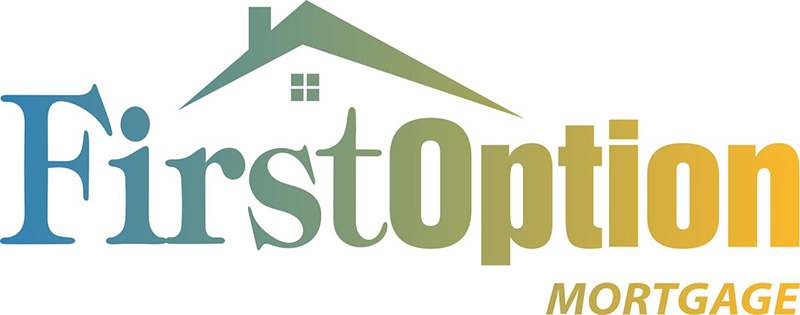

Written by:
Dustan Ingram
Loan Originator
NMLS: 712331
First Option Mortgage
View Dustan’s Bio
As you prepare to embark on the journey of home ownership for the first time, it is critical to make sure your financial house is in order. Buying a home is likely the largest financial transaction you will make in your lifetime, so diligent preparation and planning is essential. Before you start browsing listings or meeting with real estate agents, take time to evaluate your current financial standing and set concrete goals for where you need to be to qualify for a mortgage. Strengthening your financial foundation will put you in the best position to find and secure your ideal home.
Understanding Your Credit Score
Your credit score plays a pivotal role in determining your eligibility for a mortgage. Essentially a numerical representation of your creditworthiness, a credit score is calculated based on information in your credit reports. Lenders analyze your score to evaluate the risk of lending to you and to determine suitable loan terms. The higher your score, the better your chances of mortgage approval and more favorable rates.
To improve your score, pay all bills on time, keep low credit card balances, and avoid opening new accounts before applying for a mortgage. Check your credit report regularly to ensure no errors. If needed, you can dispute inaccurate information with the credit bureaus to have it corrected, which may increase your score.
Consider using a credit-building tool, such as a secured credit card. Make small purchases and pay the balance in full each month to establish a good payment pattern. Over time, your credit limit may increase, and the account can potentially transition to an unsecured card. With responsible use, your score should improve steadily.
If your score needs significant improvement, consult a credit counseling agency. They can review your full credit report, determine the root causes for your low score, and create a tailored plan to rebuild credit. While rebuilding credit takes patience and discipline, following the guidance of a reputable credit counseling agency is one of the most effective ways to improve your score and financial well-being over the long run.
A strong credit score is fundamental to achieving homeownership. Make it a priority to understand your score, take action to improve it if needed, and prepare thoroughly before entering the mortgage process. With time and effort, you can build a stable financial foundation and turn your dream of homeownership into a reality.
Managing Your Debt-to-Income Ratio
To qualify for a mortgage and ensure homeownership is financially feasible for you, evaluating your debt-to-income (DTI) ratio is crucial. Your DTI ratio compares how much you owe each month to how much you earn. Lenders consider your DTI ratio when determining your borrowing risk, and it’s generally recommended to keep your DTI ratio below 43%.
There are a few ways you can improve your DTI ratio. First, make reducing high-interest debts like credit cards, student loans, and auto payments a priority. Pay down or pay off as much as possible, as this can significantly lower your monthly obligations and increase your buying power. You might also consider refinancing high-interest debts to lower rates, allowing more of your payment to go toward the principal.
Second, look for ways to increase your income. This could mean asking for a raise at your current job, finding a higher-paying position, or taking on a side gig to generate additional income. Any extra money earned can be put toward your debts to lower your DTI ratio further.
Finally, create a realistic budget and spending plan to gain control of your cash flow. Look for expenses you can reduce or eliminate, and allocate any excess funds to paying off debts. Even small lifestyle changes can make a big difference in your financial well-being over time.
Improving your DTI ratio and optimizing your budget may require discipline and sacrifice but will be well worth it when you’re holding the keys to your new home. By paying off debt, increasing income, and better managing your money, you’ll strengthen your financial position and open the door for mortgage approval on the best possible terms. Our team of experts can evaluate your unique situation and provide customized guidance for lowering your DTI ratio and achieving homeownership.
Building Your Down Payment Fund
To purchase a home, you will need a down payment, typically 3.5% to 20% of the home’s selling price. Saving enough for a sizable down payment is crucial to gaining approval for a mortgage and securing favorable loan terms.
There are several strategies to build your down payment fund:
Set up an automatic transfer to a high-yield savings account. Transfer money each month from your checking account to a separate savings fund earmarked for your down payment. Even small, consistent contributions will add up over time through the power of compounding interest.
- Take advantage of first-time homebuyer assistance programs. Many states, local governments, and non-profit organizations offer down payment assistance for qualifying first-time homebuyers. Options include grants, forgivable second mortgages, and matched savings programs. Research programs in your area to find those you may be eligible for.
- Ask family members for gift contributions. If family members offer monetary gifts, keep in mind the tax implications. Gifts under $15,000 per person in 2021 do not need to be reported or taxed. Larger gifts may be subject to the gift tax, though the giver can apply the amount to their lifetime gift tax exemption.
- Discuss low or no down payment options with your lender. Options like VA loans, USDA loans, and some FHA loans allow down payments as low as 0%. Your lender can evaluate your unique financial situation and determine if you qualify for one of these alternative mortgage programs.
Building your down payment fund requires discipline and time. However, with consistent saving and smart strategies, you can achieve your goal of buying your first home.
Reach out to a mortgage expert for guidance tailored to your needs and to discuss the various down payment and mortgage options available.
Establishing an Emergency Savings Account
As a potential homeowner, establishing an emergency savings fund should be a top priority. This fund acts as a financial safety net in case of unforeseen circumstances like job loss, major home repairs, or medical emergencies. Having adequate emergency savings gives you peace of mind that you can continue making mortgage payments and avoid defaulting on your loan.
To build your emergency fund, set up automatic transfers to move money each month from your checking to a dedicated high-yield savings account. A good rule of thumb is to save enough to cover 3 to 6 months of essential expenses like housing, food, and transportation in case of job loss or other financial hardship. Any windfalls like tax refunds, bonuses or gifts should also be allocated to this fund.
Reducing discretionary spending and creating a budget are effective ways to find money each month to put towards your emergency fund. Look for expenses you can decrease or eliminate, such as dining out, entertainment or hobbies. A financial advisor can help analyze your unique situation and provide customized guidance on how to improve your budget and grow this vital savings fund.
Once established, your emergency fund should be held in a liquid savings vehicle for quick access if needed. However, only withdraw money from this fund for true financial emergencies. Replenish the fund as soon as possible to ensure you have adequate coverage in case of another unforeseen circumstance.
An emergency fund provides security and stability for new homeowners. Make building this fund a priority so you can enjoy your new home with confidence knowing you have a financial safety net to fall back on if needed. With prudent saving and budgeting, you will build a robust emergency fund in no time.
Consulting the Experts for Personalized Guidance
When embarking on the home buying process, expert guidance can help ensure you make the most informed decisions for your unique financial situation.
The mortgage professionals at First Option Mortgage can evaluate your finances to preapprove you for a loan amount before you start house hunting. We’ll assess your credit score, debt-to-income ratio, employment history, and down payment to determine appropriate loan programs and terms.
Seeking advice from our experts provides invaluable guidance and support. Our consultations and evaluations give you confidence in your financial position before embarking on the home buying process.
Personalized recommendations help ensure you pursue a mortgage you can afford and find a home that fits comfortably within your budget. With the experts at First Option on your side, you’ll feel fully prepared to navigate the path to homeownership.
Now that you have taken the time to understand your budget, debts, and financial goals, you are in a strong position to start looking for your new home. Buying a house is an exciting milestone, but also a serious financial commitment.
By evaluating where you stand today and putting plans in place to strengthen your financial foundation over the coming months, you have given yourself the gift of confidence and stability. When you do find the right property, you will be able to make an informed choice knowing you have set yourself up for success.
With discipline and patience, you will ensure you are securing a place to call home for years to come. The groundwork you have laid will provide the opportunity to enjoy this next chapter with peace of mind.









